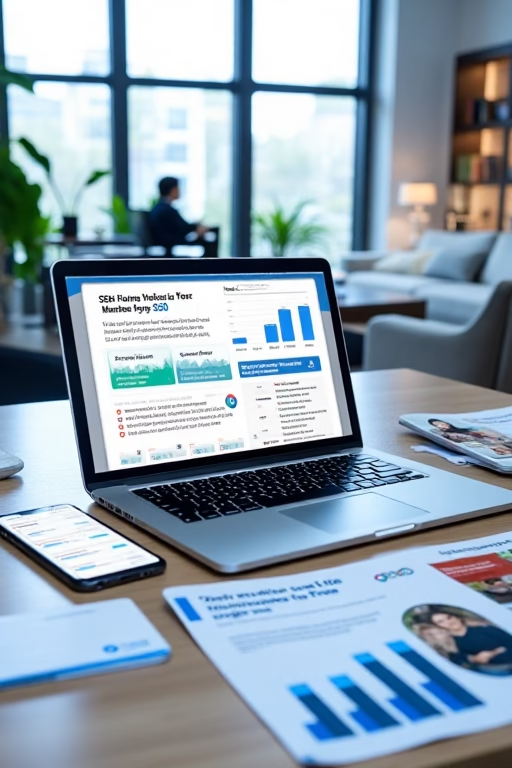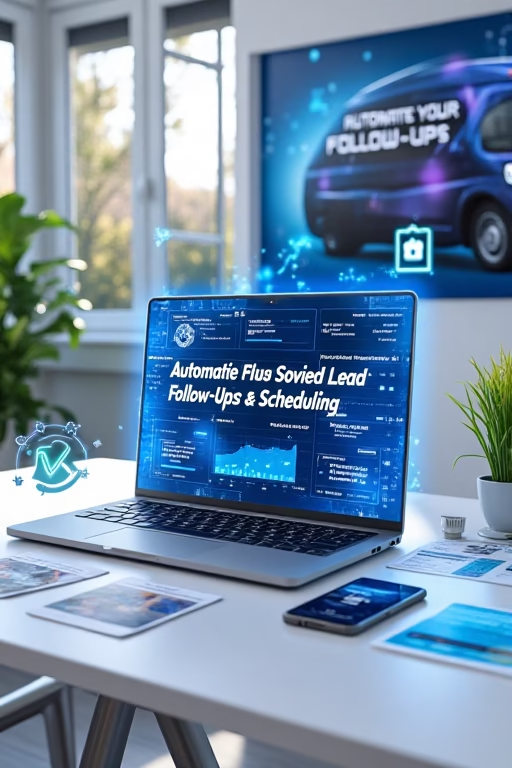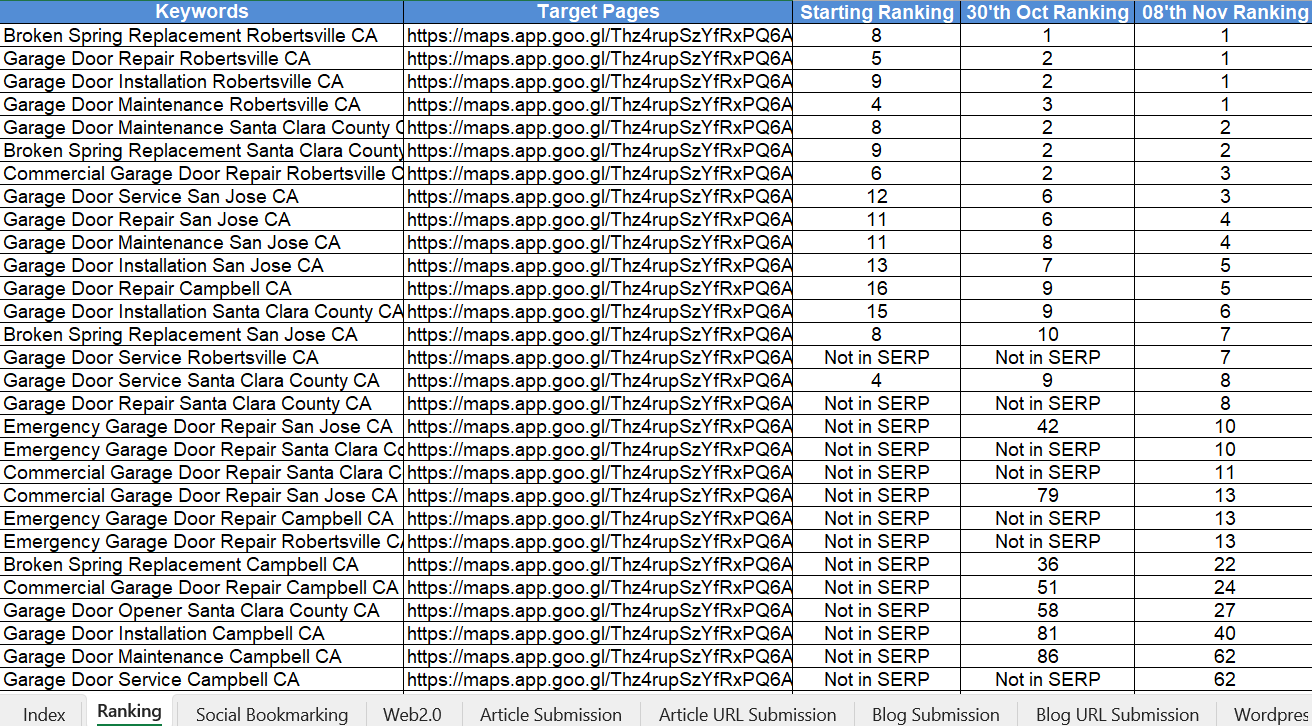Why Craigslist & Facebook Marketplace Work Best for Equipment Sales
Why Craigslist & Facebook Marketplace Work Best for Equipment Sales
Your Ultimate Guide to Leveraging Classified Platforms for Maximum Equipment Leads
Table of Contents
- Introduction: The Power of Classified Platforms
-
Platform Benefits
- Why Craigslist?
- Why Facebook Marketplace?
- Complementary Strengths
-
Targeting & Local Reach
- Local Audience Insights
- Geo-Targeted Advertising
-
Creative Ad Techniques
- Compelling Ad Copy & Visuals
- Special Offers & Promotions
-
Integrating with Your Overall Marketing Strategy
- Landing Pages & Lead Capture
- CRM and Automated Follow-Ups
-
Analytics & Continuous Optimization
- Tracking Key Metrics
- Data-Driven Adjustments
- Case Studies & Success Stories
- Conclusion & Next Steps
- FAQs
- Additional Keywords for SEO & Content Strategy
Introduction: The Power of Classified Platforms
In the world of equipment sales, reaching the right buyers is crucial. Craigslist and Facebook Marketplace have emerged as two of the most effective channels for connecting sellers with potential customers. These platforms offer a unique combination of local reach, cost-effectiveness, and user-friendly features that make them ideal for heavy equipment and machinery sales.
This guide explores why these classified platforms work best for equipment sales. We’ll discuss the benefits of each platform, share tips on targeting and ad creation, and explain how to integrate these channels into your overall marketing strategy to drive high-quality leads and boost your sales.
Platform Benefits
Why Craigslist?
Craigslist remains a favorite for local buyers due to its simplicity and broad reach. It allows you to post detailed listings, complete with images, pricing, and contact information, which attract serious buyers actively searching for equipment in their area.
Why Facebook Marketplace?
Facebook Marketplace offers advanced targeting options and a highly visual platform. Its integration with Facebook’s social network allows you to reach a wider audience, benefit from user-generated content, and utilize dynamic ad formats to showcase your equipment effectively.
Complementary Strengths
When used together, these platforms provide a powerful one-two punch: Craigslist drives hyper-local traffic, while Facebook Marketplace expands your reach with its advanced targeting and engaging visuals. This dual approach ensures you capture both immediate local leads and broader market interest.
Targeting & Local Reach
Local Audience Insights
Understanding the demographics and buying behaviors in your local market is key. Both platforms offer tools to target users by location, ensuring that your listings reach the most relevant audience.
Geo-Targeted Advertising
Utilize geo-targeted keywords and advertising features on Facebook Marketplace to focus your campaigns on specific regions. This increases the relevance of your ads and drives more qualified leads to your listings.
Creative Ad Techniques
Compelling Ad Copy & Visuals
Successful ads combine persuasive copy with high-quality images and videos. Clearly highlight the key features and benefits of your equipment, and use strong calls-to-action to prompt immediate inquiries.
Special Offers & Promotions
Incorporate special promotions or limited-time offers in your listings to create urgency and incentivize buyers. Regularly updating your ads with fresh deals can lead to higher engagement and conversions.
Integrating with Your Overall Marketing Strategy
Landing Pages & Lead Capture
Direct your classified ad traffic to optimized landing pages that are designed to convert visitors into leads. Include clear calls-to-action, detailed product information, and easy-to-use contact forms.
CRM and Automated Follow-Ups
Integrate your lead capture efforts with a CRM system to streamline follow-ups. Automated email campaigns and retargeting ads help nurture leads over time, ensuring no potential buyer is missed.
Analytics & Continuous Optimization
Tracking Key Metrics
Monitor important metrics such as ad impressions, click-through rates, conversion rates, and cost per lead using analytics tools like Google Analytics and platform-specific dashboards. This data helps you understand what works and where improvements are needed.
Data-Driven Adjustments
Continuously refine your ad campaigns and website content based on performance data. Regular A/B testing and performance reviews ensure that your marketing strategies remain effective and deliver maximum ROI.
Case Studies & Success Stories
Real-world examples of equipment dealers who have successfully leveraged Craigslist and Facebook Marketplace provide valuable insights. Learn from their strategies and discover how they achieved higher conversion rates, improved lead quality, and increased overall sales.
Conclusion & Next Steps
Combining Craigslist and Facebook Marketplace offers a powerful, cost-effective strategy for equipment sales. By optimizing your listings, targeting your local audience, and integrating these platforms into your broader marketing strategy, you can drive high-quality leads and boost your sales.
Begin by assessing your current digital presence, then implement the strategies outlined in this guide. Continuous monitoring and optimization are key to staying ahead of the competition. For more expert insights, visit our Digital Marketing Insights section and explore additional resources from industry leaders.
Frequently Asked Questions (FAQs)
1. Why are Craigslist and Facebook Marketplace effective for equipment sales?
They offer strong local targeting, cost-effective ad placement, and user-friendly platforms that attract serious buyers.
2. How can I create compelling classified ads?
Focus on clear, persuasive ad copy and high-quality visuals that highlight your equipment’s key features and benefits.
3. What role does local SEO play in equipment sales?
Local SEO ensures that your listings are visible to buyers in your area, increasing the likelihood of local inquiries and sales.
4. How can I optimize my Google My Business listing?
Keep your listing updated with accurate information, high-resolution images, customer reviews, and regular posts to boost local visibility.
5. What are geo-targeted keywords?
Geo-targeted keywords combine location-specific terms with industry terms to help your site rank in local searches.
6. How do I drive more traffic to my landing pages?
Create dedicated landing pages optimized for conversions with clear calls-to-action and detailed product information.
7. What is the benefit of integrating a CRM with my marketing efforts?
A CRM system helps manage leads efficiently, automate follow-ups, and provide insights for further optimization.
8. How important is A/B testing in classified ad campaigns?
A/B testing helps you compare different ad versions to identify which creative elements drive higher engagement and conversions.
9. Can I use both organic and paid strategies on these platforms?
Yes, combining organic listings with targeted paid ads can maximize your reach and generate more qualified leads.
10. How can customer reviews influence equipment sales?
Positive reviews build trust and credibility, encouraging potential buyers to choose your listings over competitors.
11. What type of content should I create for my website?
Develop blog posts, videos, and case studies that address common buyer questions and showcase the value of your equipment.
12. How do I measure the success of my classified ads?
Track key metrics such as impressions, click-through rates, and conversions using analytics tools.
13. What are the benefits of using social media for equipment sales?
Social media platforms increase brand awareness, drive traffic, and allow for targeted advertising that reaches your ideal audience.
14. How often should I update my classified listings?
Regular updates with fresh content and new promotions keep your listings active and improve visibility.
15. Can video content enhance my equipment listings?
Yes, videos offer dynamic demonstrations of your equipment, increasing engagement and helping buyers make informed decisions.
16. How important is it to track ROI?
Tracking ROI ensures that you can measure the effectiveness of your marketing strategies and adjust your budget allocation accordingly.
17. What is the role of meta tags in SEO?
Meta tags provide search engines with information about your page content, influencing your ranking and click-through rates.
18. How do I generate quality backlinks?
Engage in guest posting, outreach, and content marketing to earn backlinks from reputable sources in the industry.
19. What should I focus on in my ad copy?
Highlight the unique features, benefits, and competitive pricing of your equipment to capture the attention of potential buyers.
20. How can I leverage geo-targeting in my ads?
Use location-specific keywords and set up targeted campaigns to ensure your ads reach buyers in your desired regions.
21. Can I use automated tools for lead follow-ups?
Yes, integrating a CRM with automated follow-up tools can help nurture leads and improve conversion rates.
22. How do I handle customer inquiries efficiently?
Implement a robust CRM system to manage inquiries, ensuring timely responses and effective lead management.
23. Is it necessary to use both organic and paid methods?
Combining both approaches maximizes your reach and ensures a steady flow of leads from multiple channels.
24. How can I improve my ad's visual appeal?
Invest in high-quality images and videos, and use a clean, professional layout to make your ads more attractive.
25. What are the next steps to enhance my online equipment sales?
Audit your current digital presence, optimize your classified listings and website, and implement the strategies outlined in this guide for sustainable growth.
Additional Keywords for SEO & Content Strategy
- heavy equipment SEO
- equipment sales online
- digital marketing for machinery
- classified ads for equipment
- organic lead generation heavy equipment
- local SEO for equipment dealers
- Google My Business equipment
- content marketing machinery
- equipment advertising strategies
- PPC for heavy equipment
- online marketplace heavy machinery
- SEO optimization equipment sales
- backlink building for dealers
- customer reviews equipment sales
- geotargeted equipment ads
- inbound marketing heavy equipment
- organic traffic machinery
- equipment dealer digital strategy
- CRM for equipment sales
- drip campaigns machinery
- automated follow-ups equipment
- equipment sales conversion
- local citations heavy equipment
- video marketing equipment
- SEO tools for machinery
Final Thoughts
Combining effective SEO strategies with targeted classified ads is a powerful way for heavy equipment dealers to increase online sales. By optimizing your website for organic search, creating compelling classified ads, and integrating these efforts with a robust digital marketing strategy, you can attract high-quality leads and maximize your ROI.
Start by auditing your current online presence and implementing the tactics discussed in this guide. With continuous monitoring, testing, and data-driven optimization, you can stay ahead of the competition in 2025 and drive sustained growth. For additional insights, visit our Digital Marketing Insights section and explore more resources from industry experts.
Why Craigslist & Facebook Marketplace Work Best for Equipment Sales Read More »








Social Media & PPC Advertising
Targeted Social Media Campaigns
Engage with your audience on platforms such as Facebook, Instagram, and LinkedIn. Tailor your content to highlight product features, promotions, and industry news. Social media advertising allows for precise targeting based on demographics and interests, driving relevant traffic to your site.
Cost-Effective PPC Strategies
PPC advertising can provide an immediate boost in traffic. Focus on local and industry-specific keywords to maximize your ad spend. Regularly monitor and adjust your campaigns to improve ROI and ensure that your ads reach high-intent buyers.